I’m finding my email box filling every day with links to interesting Nowtopian initiatives, events, ways of framing things. Not much of it is totally new, but given the context of our rushing moment in history, and reframing it as aspects of an emergent Nowtopia, I’m enjoying it all…
First off, I rode in San Francisco’s Critical Mass again, after my longest ever hiatus, 3 months (missed April, Rome in May, Vancouver in June)… It was kind of small after the huge rides in Italy and Canada, but by the time we got rolling it was probably the usual 1000-1500 or so. Funny to arrive at PeeWee Herman Plaza and find only about 100-200 people at a few minutes before six… Anyway, here’s a couple of shots of the ride, one in Mission Bay, the other much later on Polk Street. Whoever got in front of this ride did a masterful job of twisting and turning through San Francisco’s charming geography, and took us for the first time ever on a wraparound and through the Mission Bay area, still heavily under construction, the blot of suburbia being implanted in the midst of landfill and long-forgotten railroad corruption…
As far as I could tell, the SF ride was its usual bucolic experience for most, a lot of good cheer along the way, much support from bystanders and most motorists, a few contentious moments, but nothing to write about. At least five different sound systems pumping tunes into the ride, so that made for a fairly noisy experience too…
Meanwhile, in New York, the dogged cyclists have kept Critical Mass alive in spite of really intense efforts to stop it. As it passed through Times Square a 22-year-old rookie cop (who turns out to be third generation) demonstrated his personal rage towards cyclists with this remarkable, unprovoked attack:
It’s been my argument for years now that the Culture War in the U.S. shows up at Critical Mass from time to time, primarily when police take it personally and attack cyclists for having created a convivial, pleasure-oriented experience that rejects the ball-and-chain of car-gas-debt… the cops are personally offended and decide it is their duty to mete out punishment, in a classically patriarchal way, though at least you can say that this pudgy cop had enough “integrity” to attack someone nearly his own size for a change (unlike past examples where cops took it out on diminutive females)… Anyway, it seems that the cop has been taken off the streets and may even be charged, an amazing turn of events in NY if it happens (the cops have been blatantly breaking the law in NYC since Aug. 2004, stealing locked bicycles, arresting people for breaking nonexistent laws, enforcing fantasy regulations, etc.)…
There was also some kind of melee in Seattle this past Critical Mass, when a motorist drove into a crowd of cyclists. Interesting to see how (typically) out of whack the initial news reports are when compared to eyewitness accounts.
Other Nowtopian items: The Greywater Guerrillas got a decent feature on them in the East Bay Express, and are at the forefront of taking direct action against the dumb anti-ecological building codes that prevail at this point. Three women pedaled from Washington to Montreal searching for local gardening and food initiatives and found a lot! This paralleled my own sense from travelling around on my tour these past months… the more you look the more you find! They’ve got a blog on it too, of course! Very heartening…
And on the food front, there’s a great deal of blather about how the rise of biofuels has caused the world food crisis. I have been arguing that of course there’s an effect, but to attribute the world food crisis to biofuels is to miss the obvious point that the world agribusiness system is designed to produce scarcity and hunger! Bolstering this view is a nice short essay by my pal George Caffentzis in the new issue of Turbulence which I first encountered last summer at Rostock’s anti-G8 protest and is now up to their 4th number. Congrats to them, and lucky us! Check it out!
Going along with my developing theme of Nowtopia vs. Apocalypse, I just read Dmitry Orlov’s “Reinventing Collapse: The Soviet Example and American Prospects”… I found this nice review at Piedmont Biofuels site, with which I largely concur. Orlov’s take is refreshingly unblinkered as he takes apart a lot of the complacency that underlies the fragility of American daily life. There are a number of points where he is just hilarious. I liked this one especially where he metaphorically describes the end of the Cold War in terms markedly different than the endless triumphalist chorus we are subjected to in the U.S.:
“If a contest goes on for an extended period of time–in the case of the superpower contest, over three decades–it would appear safe to conclude that the contestants had been evenly matched. But we will probably never know for certain why the Soviet fighter chose to take a dive in the fourth round, because that certainly did not look like a proper knock-out. It is also hard to understand why the American fighter concluded his little victory jig by kneeing himself in the teeth, or why he is now draped unconscious over the ropes and getting pummeled by some junior featherweights from the stands. And why is the Soviet fighter now seated back in his corner, laughing? It is never easy to give up the title of World Superpower Champion, espeically when it is not being challenged, but this is ridiculous! What sort of sporting event is this anyway? Bring back the schoolgirl and the kangaroo!”
Orlov’s book is a quick read, short and to (many) points. He excoriates the U.S.’s educational system really well too:
“… the goal of the American higher education system is not to educate….The American higher education system succeeds brilliantly at one thing: producing a subservient graduate who has no choice but to join the labor force on the terms dictated by her future corporate masters. Along with accepting the burden of educational debt, the graduate makes a number of key concessions: that financial success is more important than doing what you want; that having a career is mroe important than family life; and, perhaps most importantly, that failure is not an option. The newly graduated dentist cannot afford to realize that rotten teeth really freak her out and that she should perhaps do some volunteer work unrelated to dentistry. The need to repay the guaranteed student loans means that she must drill those teeth, whether she wants to or not, while heavily medicated if necessary.”
Anyway, it occurred to me some years ago that the parallels between the USSR and USA were pretty striking, and it’s great fun to read a book that really drives the point home, with the advantage of having lived in both societies, and seen up close the collapse of the Soviet economy. As it turns out, Orlov’s analysis indicates that the Russians were/are better able to handle the dislocations than Americans will ever be, thanks to essentially free housing, reliable unmarketized energy, kitchen gardens, and public health care, plus a general stability to neighbors and co-workers. With all that the Russians were able to maintain a certain level of their normal lives even when things broke down more generally. Contrast to the U.S., where folks are thrown out of their homes easily for nonpayment of rent or mortgage, there are no meaningful options for public transit in huge swaths of the country, people are completely dependent on petroleum-based agriculture and just-in-time retail outlets, all of which can decay very rapidly in the absence of affordable oil.
So get ready! And interestingly, a lot of the Nowtopian projects I’ve been referring to are great examples of people taking pre-emptive action to meet their needs outside of the dysfunctional markets and industrial systems that inculcate such dependency among everyone else… hmmmm…




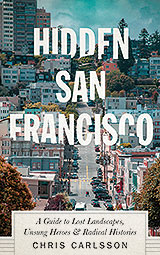
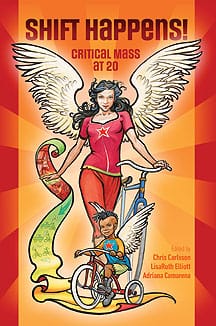
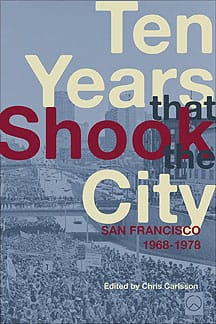
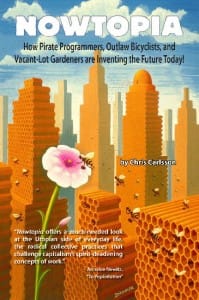
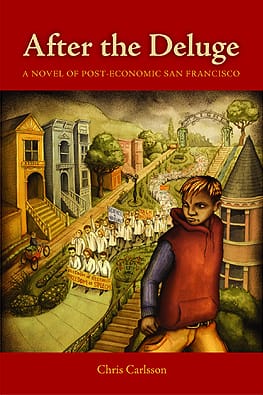
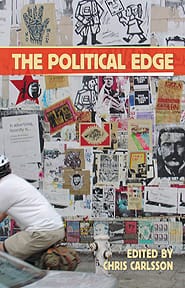
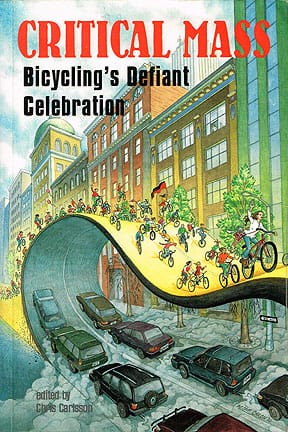
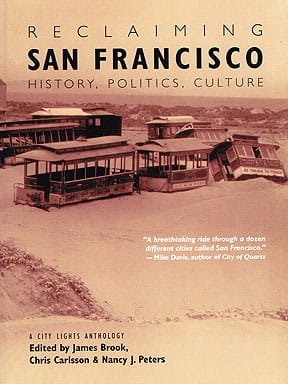
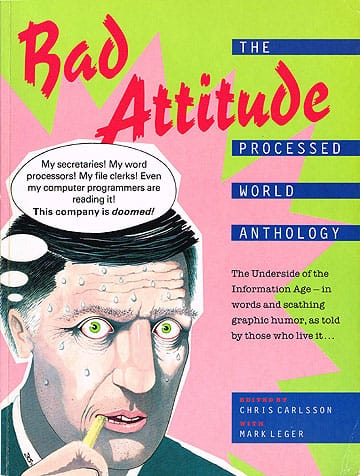

Leave a Reply